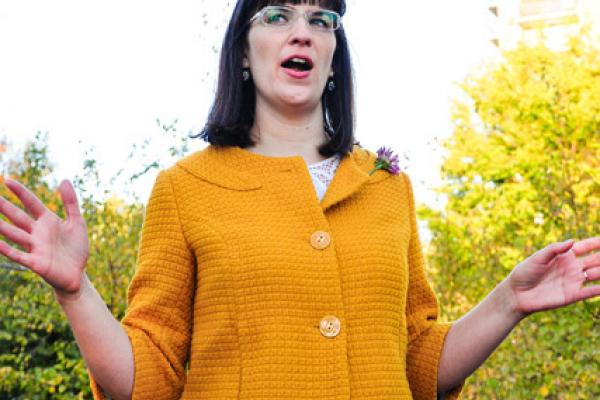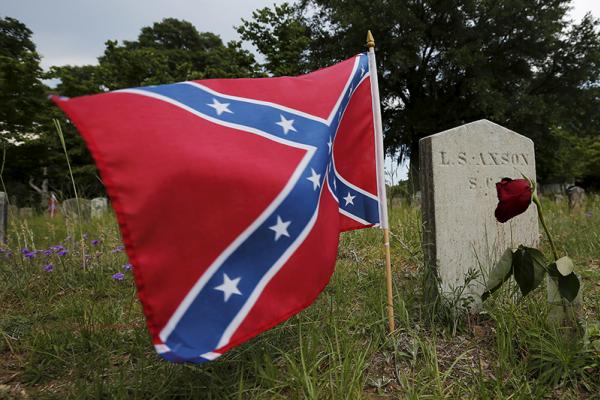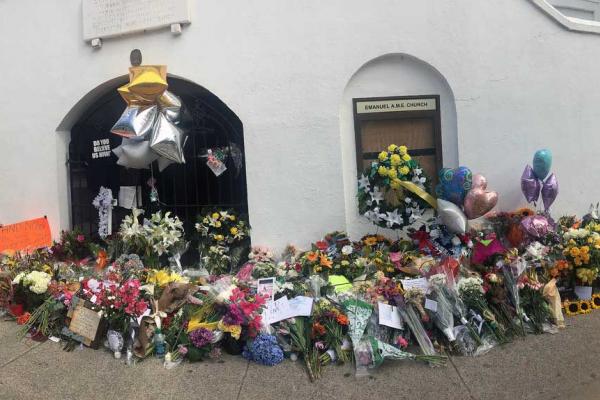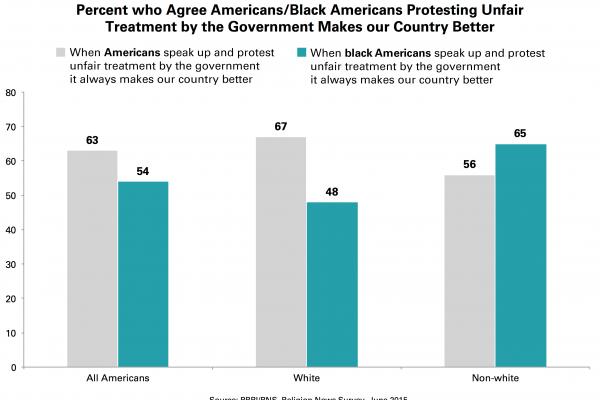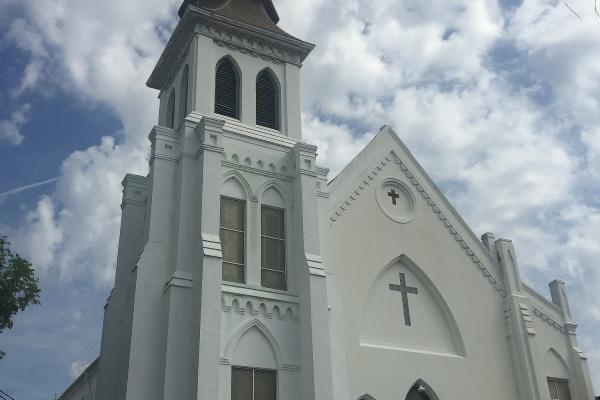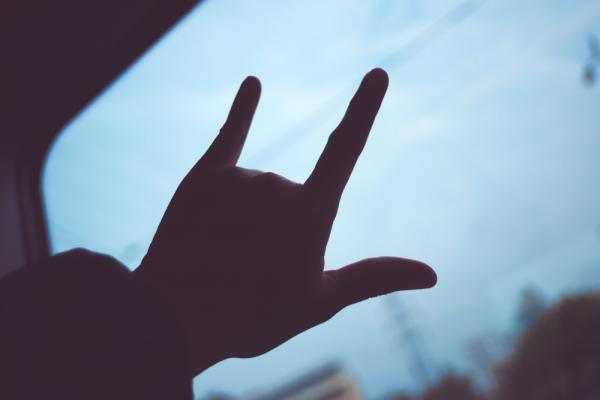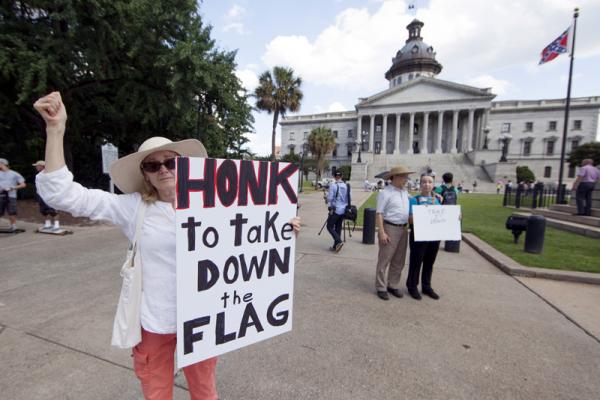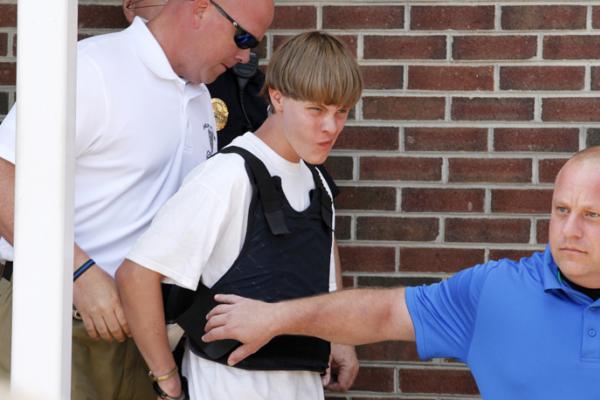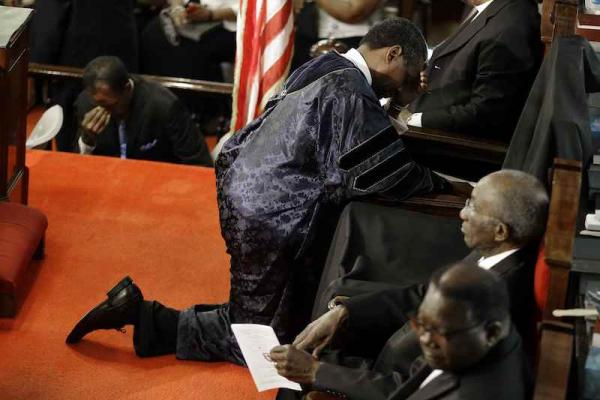Nancy Ross was sitting next to Kate Kelly at an Ordain Women board meeting in Salt Lake City on June 23, 2014, when Kelly learned that she had been excommunicated from the LDS Church.
Kelly began to tear up at the email from her Mormon bishop, and soon most of the nine or so board members around the table were weeping as well.
“It was a truly awful day — with a lot of really big emotions,” Ross recalls.
“A year later, it’s still an awful thing.”
The Confederate battle flag will not fly much longer on the grounds of the South Carolina state Capitol, where it has flown since it was dislodged from the Capitol itself 15 years ago.
The state’s political establishment wants it gone, and doubtless it soon will be. What is to be hoped is that its removal signals the end of the mythical republic for which it stands.
In the years after the Civil War, the battle flag became the emblem of the Religion of the Lost Cause, which white Southerners embraced not only to legitimate and ennoble their disastrous struggle to maintain their right to own other people, but also to create the myth of an antebellum golden age of genteel manners, Christian piety, and happy slaves.
There is a scripture that says we wrestle not against flesh and blood but against powers and rulers of the darkness. Within the nonviolent faith tradition it has always been clear that hate cannot drive out hate and evil cannot drive out evil, and so the Christians that were able to forgive the murder 48 hours after losing their loved ones is consistent with their faith Jesus said as he was being murdered by the state, "Father forgive them for they know not what they do." But this forgiveness should not be misinterpreted as a dismissing of the greater evil. Their forgiveness is also an act of resistance to the attempts to lay the blame for this horror at the feet of one man. If America is serious about this moment we cannot just cry ceremonial tears while at the same time refusing to support the martyred Reverend and his parishioners’ stalwart fight against the racism that gave birth to the crime.
Sometimes they release studies about white people that just make you groan.
When “Americans” speak up and protest unfair treatment by the government, two-thirds (67%) of white Americans agree that it always makes our country better. But when “black Americans” speak up and protest unfair treatment by the government, white Americans’ approval drops to less than half (48%), all according to a study released by the Public Religion Research Institue (PRRI) on June 23 .
Seriously, white folks? Come on.
We saw a gathered crowd, a makeshift memorial, flowers and ribbons with the names of the beloved on them. We five walked our pilgrimage, paid our respects separately and together. I spoke to people from Charleston, New York, New Jersey, Connecticut, and Texas. They were predominantly white, but people of all races – children and old folk — weeping, hugging. It was church, y’all, like when at first everyone is not there and then they come.
As we talked to community people, tourists and pilgrims, we also talked to CBS, CNN, some British folk, a black man who covers black news. Reporters were intrigued by our multiracial and multi-faith, interracial and interfaith, LGBTQ and straight, coalition of women. We spoke into the cameras about how we represented a culturally and ethnically diverse American truth.
As a cross-cultural person, I am keenly aware of the vastly different ways we do life. I am a huge champion of creating space for diversity. However, leaning into our differences also serves to make universal aspects of humanity unmistakable. And one thing that binds us is our common experience of suffering. Our compassion and empathy for the suffering of others is powerful enough to break down the thickest walls of ideology.
I think about the areas of our most vehement disputes: the beginning of life (abortion), the end of life (capital punishment, end-of-life care), marriage and children (gay marriage, parenting wars), dignity of work and supporting the family (the economy) — and I see these issues radiate out of the struggle to be human. The pains that love brings to the human experiment threaten with small wedges of disagreement between us until we are fragmented mini-tribes with narrow dogmas.
Does a Southern Baptist leader’s call for the Confederate battle flag to come down mark a sea change in the views of evangelicals about a symbol long wrapped in both support for slavery and regional pride?
Or will conservative white Christians in the South resist change even as a growing number of Republican leaders — including S.C. Gov. Nikki Haley — from the region call for the flag to go?
Whatever impact “Laudato Si'” has in the political world remains to be seen. But that the pope is here embracing a nature-based mysticism, a highly adumbrated anthropocentrism, and a radical “integral ecology” places the encyclical alongside the best of radical, progressive religious environmentalism — and far outside what even mainline Protestant denominations have affirmed heretofore.
“Laudato Si'” may turn out to be politically influential. It is already theologically revolutionary.
What does it take to forgive someone like Dylann Roof? How does one muster the courage, the conviction, the moral fiber to grant such a gift to someone who has already taken so much? To serve a feast of forgiveness to a person who hasn’t even ordered a single serving?
The story of Collier’s astounding forgiveness reminds me of another ancient one. Baking in the sun, an innocent Nazarene named Jesus hangs from a Roman cross. He’s losing blood at a rapid rate. His weeping mother is crumpled at his feet, adding emotional agony to his unbearable physical torment. Jesus opens his mouth to speak, but what will he say? Will he curse his executioners or cry out against those complicit in the broken trial that landed him there in the first place?
Hundreds Sunday packed the pews of Emanuel African Methodist Episcopal Church readying themselves to bury nine beloved members and seek justice on their behalf as part of the church’s activist tradition.
In an energetic and emotional service, the Rev. Norvel Goff assured those gathered that the victims, including the church’s pastor and state senator the Rev. Clementa Pinckney, did not die in vain. Others echoed that sentiment saying that while the city is preparing for funeral services, calls for reforms and social activism would also follow.
